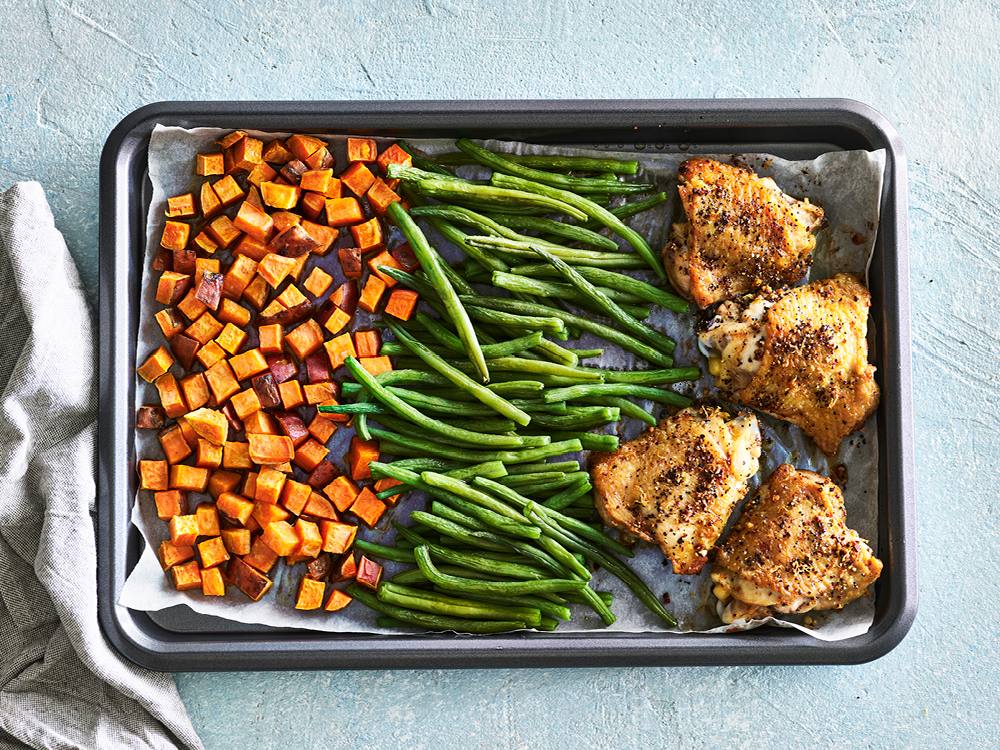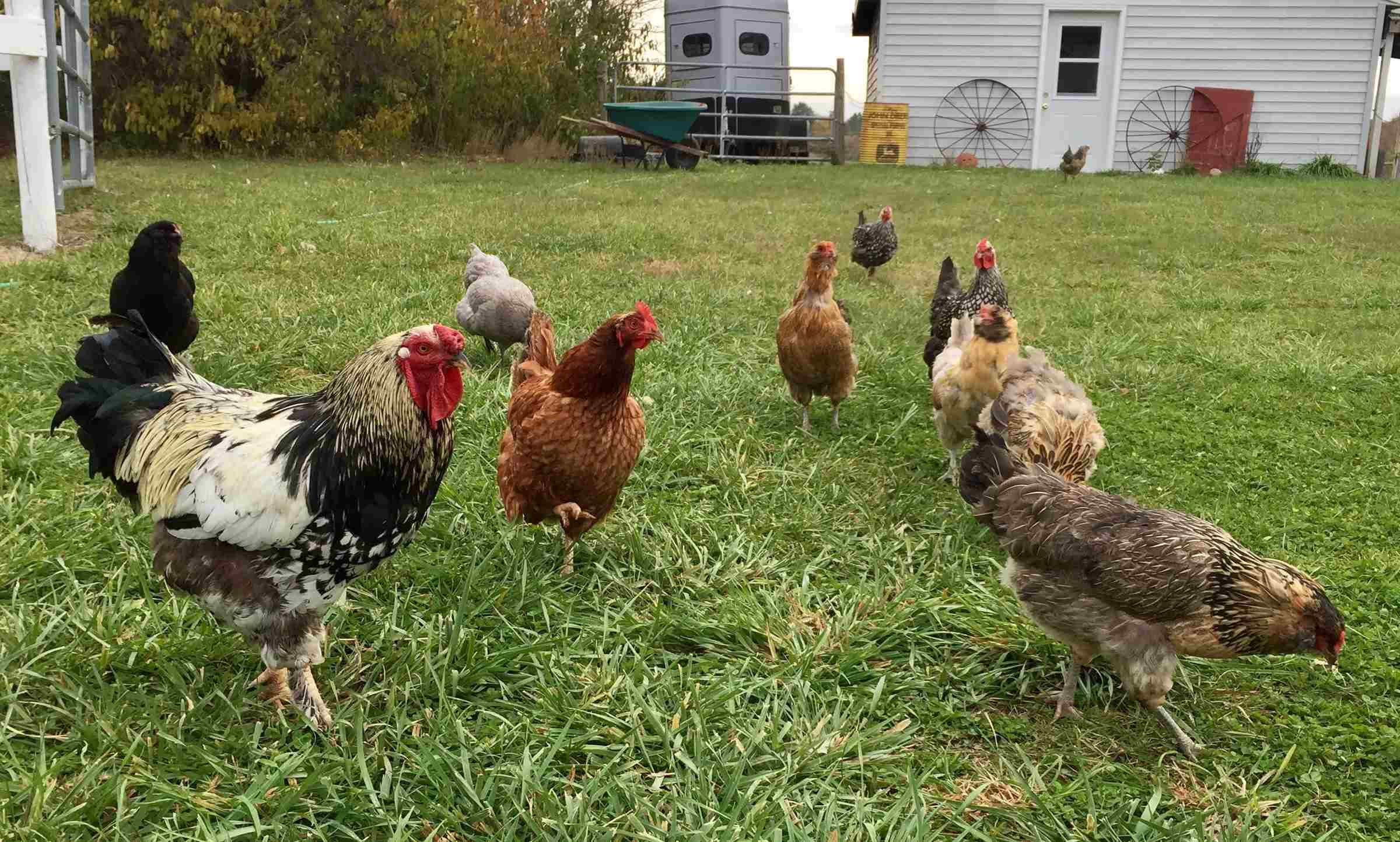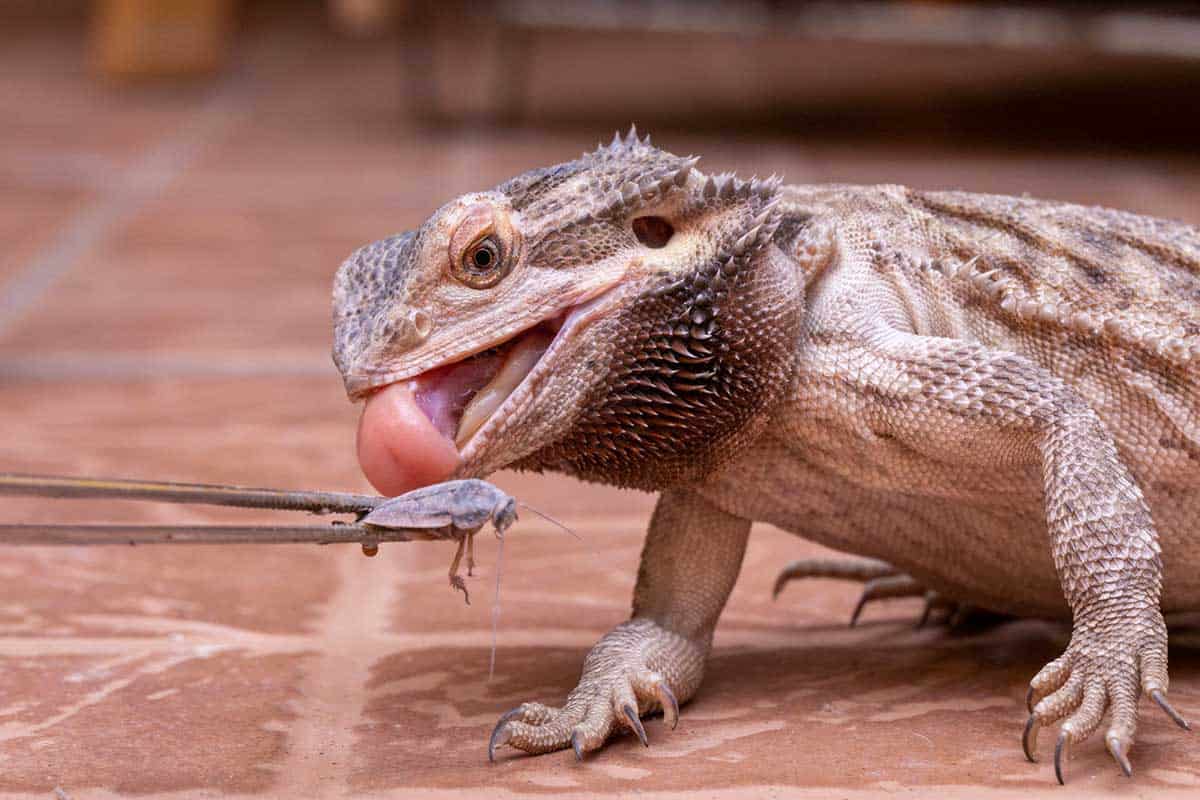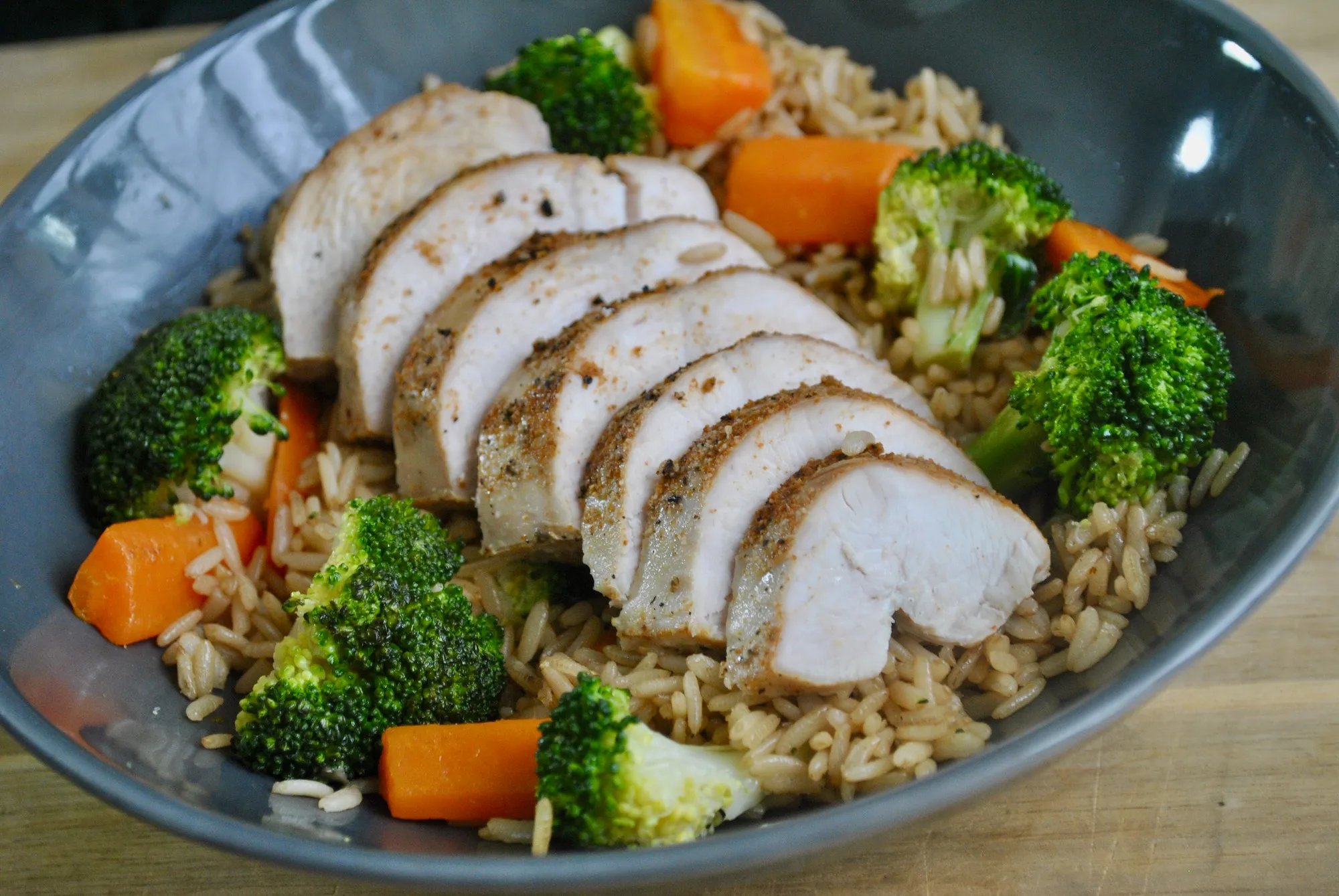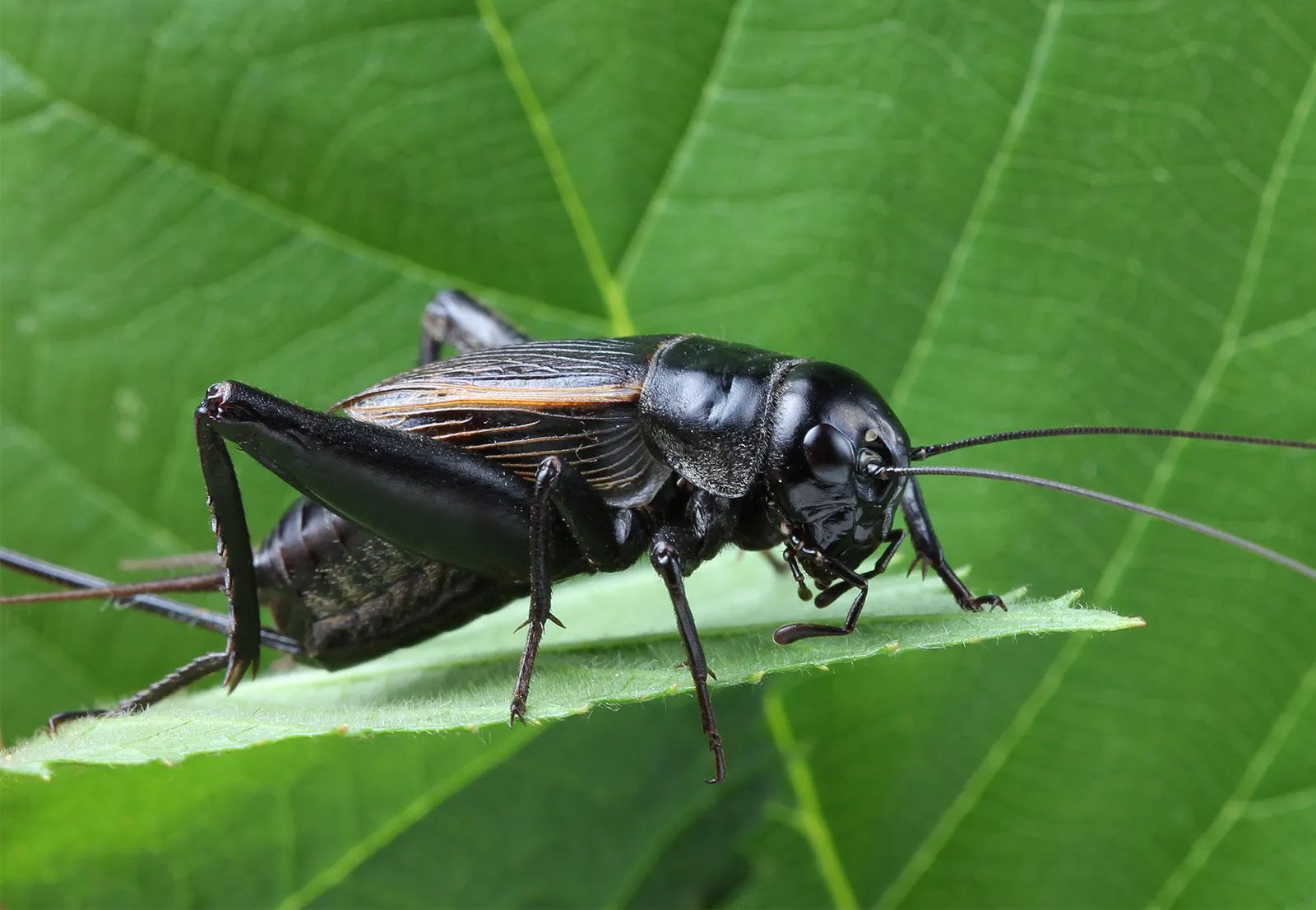Home>Gardening Tips and Tricks>What To Feed Backyard Chickens


Gardening Tips and Tricks
What To Feed Backyard Chickens
Modified: January 22, 2024
Discover effective tips and solutions for problem-solving when it comes to feeding your backyard chickens. Ensure their health and happiness with expert advice.
(Many of the links in this article redirect to a specific reviewed product. Your purchase of these products through affiliate links helps to generate commission for Chicagolandgardening.com, at no extra cost. Learn more)
Table of Contents
Introduction
Keeping backyard chickens has become increasingly popular among both rural and urban homeowners. Not only do they provide fresh eggs, but they also make great pets and offer numerous benefits to the garden. However, one of the key responsibilities of a chicken owner is ensuring that their feathered friends receive a well-balanced and nutritious diet.
Proper nutrition plays a crucial role in the overall health and well-being of backyard chickens. Just like humans, chickens require a variety of essential nutrients to support growth, feather production, immune function, and egg laying. Providing a balanced diet not only ensures optimal health but also contributes to the quality of eggs they lay.
In this article, we will explore the importance of proper nutrition for backyard chickens and discuss the essential nutrients they need. We will also delve into feeding them a balanced diet, sharing some homemade chicken feed recipes and tips for feeding them treats and scraps. Additionally, we will highlight common feed mistakes to avoid, as these can have negative consequences on the health and productivity of your flock.
Whether you’re a new or experienced chicken owner, understanding how to feed your backyard chickens properly is essential. So, let’s dive in and learn more about the best practices for nourishing our feathered friends.
Importance of Proper Nutrition for Backyard Chickens
Just like any living creature, chickens require a well-balanced diet to thrive. Providing them with proper nutrition is not only important for their overall health and wellbeing but also for their productivity as egg layers. Here are some key reasons why proper nutrition is essential for your backyard chickens:
- Growth and Development: Adequate nutrition is crucial for the healthy growth and development of chickens, especially for young chicks. Protein, vitamins, and minerals are essential for bone development, feather growth, and muscle formation.
- Feather Production: Chickens rely on a healthy and robust feather coat to regulate their body temperature, protect them from external elements, and maintain their overall health. A diet rich in protein, amino acids, and fats plays a vital role in promoting good feather production.
- Immune System Support: Proper nutrition is key to maintaining a strong immune system in chickens. A well-nourished chicken is more capable of fighting off diseases and infections, reducing the risk of illness spreading throughout the flock.
- Egg Quality and Production: A well-balanced diet significantly impacts the quality and quantity of eggs produced by backyard chickens. To lay eggs regularly and produce high-quality eggs with strong shells, hens need an adequate supply of calcium, protein, and essential vitamins and minerals.
- Overall Health and Longevity: By providing your chickens with a balanced diet, you contribute to their overall health, ensuring they live a long and fulfilling life. Healthy chickens are more resistant to diseases, less prone to parasites, and generally exhibit better vitality.
Understanding the importance of proper nutrition for backyard chickens is crucial in becoming a responsible and knowledgeable chicken owner. By prioritizing their dietary needs, you can ensure that your flock remains healthy, happy, and productive.
Essential Nutrients for Backyard Chickens
To provide your backyard chickens with a well-balanced diet, it is important to understand the essential nutrients they require. These nutrients can be categorized into various groups:
- Protein: Protein is essential for muscle development, feather production, and egg formation. Chickens require high-quality sources of protein, such as soybean meal, fish meal, or dried mealworms. Adult chickens generally require around 16-20% protein in their diet, while growing chicks may need up to 22% protein.
- Carbohydrates: Carbohydrates provide energy to chickens and are an essential component of their diet. Common sources of carbohydrates for chickens include grains like corn, wheat, and oats. It is important to ensure a balance between protein and carbohydrates in their diet to prevent issues like obesity and fatty liver syndrome.
- Fats: Fats are a concentrated source of energy for chickens and aid in the absorption of vitamins. Including a small amount of healthy fats, such as vegetable oil or fish oil, in their diet can contribute to overall health and feather quality.
- Vitamins: Chickens require a range of vitamins, including vitamin A, D, E, K, and B-complex vitamins. These vitamins are crucial for proper growth, immune function, egg production, and overall health. Fresh greens, fruits, and vegetables can provide a natural source of vitamins, but additional supplements may be necessary, especially during the winter months.
- Minerals: Minerals, such as calcium, phosphorus, potassium, and magnesium, are essential for bone development, eggshell formation, nerve function, and overall metabolic processes. Layer feed should contain higher levels of calcium to support eggshell production, while starter feed for chicks should have a balanced mix of minerals for proper growth.
- Water: While not a nutrient, water is crucial for the health and wellbeing of backyard chickens. Chickens should have access to fresh, clean water at all times. Water plays a vital role in digestion, temperature regulation, nutrient absorption, and overall hydration.
Providing a balanced diet that includes these essential nutrients is vital for the overall health and productivity of your backyard chickens. Commercially available chicken feeds often contain the right balance of nutrients, but you can also supplement their diet with homemade feed or treats to ensure they receive a varied and nutritious diet.
Feeding Backyard Chickens a Balanced Diet
Feeding your backyard chickens a balanced diet is crucial to ensure their health, productivity, and overall wellbeing. Here are some tips to help you provide a well-rounded and nutritious diet for your feathered friends:
- High-Quality Commercial Feed: A good starting point for feeding backyard chickens is to use a high-quality commercial feed specifically formulated for their age and purpose. There are different types of feeds available, including starter feed for chicks, grower feed for young chickens, and layer feed for hens. These feeds are designed to provide the necessary nutrients in the right proportions.
- Supplement with Fresh Fruits and Vegetables: Adding fresh fruits and vegetables to your chickens’ diet can provide additional vitamins and minerals. Leafy greens like kale and spinach, fruits like watermelon and berries, and vegetables like carrots and cucumbers make excellent treats and supplements to their regular feed. Just remember to introduce new foods gradually to avoid digestive upsets.
- Incorporate Protein Sources: Adding protein-rich sources to their diet is important, especially during molting, egg laying, and growth periods. Mealworms, earthworms, cooked eggs, and meat leftovers (in moderation) are great sources of protein that can be provided as treats or additions to their regular feed.
- Offer Grit and Calcium: Chickens need access to grit to aid in digestion, especially if they are free-ranging. Grit helps break down food in their gizzard since chickens don’t have teeth. Calcium is crucial for proper eggshell formation, so providing crushed oyster shells or eggshells can help meet their calcium needs.
- Monitor Feed Consumption: It’s important to keep an eye on how much your chickens are eating to ensure they are getting enough food. Inadequate feed intake can lead to malnutrition, while excessive consumption can cause obesity and related health issues. Adjust the feed quantity based on the specific needs of your flock.
- Provide Clean Water: Access to clean and fresh water is essential for chickens’ overall health and digestion. Make sure the water container is cleaned regularly and kept in a shaded area to prevent algae growth. During winter, use heated waterers to prevent freezing.
Remember, every flock is unique, and their nutritional needs may vary based on factors such as breed, age, and environmental conditions. Regularly observe your chickens’ behavior, weight, and overall health to ensure they are receiving a well-balanced diet. Consulting with a poultry nutrition specialist or a veterinarian can provide valuable insights tailored to your specific flock’s needs.
Homemade Chicken Feed Recipes
If you prefer to have more control over your backyard chickens’ diet or want to provide them with a varied and homemade alternative, you can create your own chicken feed using simple ingredients. Here are a few homemade chicken feed recipes to consider:
- Basic Homemade Chicken Feed: Mix together equal parts of whole grains such as corn, barley, oats, and wheat. Add in a protein source like soybean meal, fish meal, or dried mealworms. You can also add some crushed oyster shells or eggshells for calcium. This basic recipe can serve as a foundation that you can customize based on the specific needs of your flock.
- Vegetarian Chicken Feed: If you prefer a vegetarian option, you can substitute the protein sources mentioned above with alternative plant-based options. Consider using legumes like dried peas, lentils, or mung beans as the protein component. You can also add alfalfa meal or spirulina powder for extra nutrients.
- Scratch Grain Mix: Scratch grains are a popular treat for chickens and can be used as a supplemental feed rather than a complete diet. Mix together cracked corn, wheat, oats, and other whole grains. Scatter it on the ground for your chickens to forage, promoting natural behavior and mental stimulation.
- Fermented Feed: Fermenting the chicken feed can enhance its nutritional value and improve digestibility. Soak the grains and protein sources in water overnight, and allow them to ferment in a warm place for a day or two. The fermented feed will become soft and slightly sour, making it easier for chickens to digest and absorb nutrients.
When creating homemade chicken feed, it is essential to maintain a balance of protein, carbohydrates, fats, vitamins, and minerals. You can adjust the ratios based on the specific needs of your flock, taking into consideration factors like age, breed, and overall health. Monitoring their body condition, weight, and egg production will help you fine-tune the recipe to meet their requirements.
Remember, while homemade feed can provide variety and control, it’s important to ensure that it meets the nutritional needs of chickens. Consulting with a poultry nutritionist or a veterinarian can provide guidance and ensure that your homemade feed is well-balanced and suitable for your flock.
Feeding Backyard Chickens Treats and Scraps
Feeding treats and kitchen scraps to your backyard chickens can be a fun and rewarding way to supplement their diet while minimizing food waste. Here are some guidelines to consider when giving treats and scraps to your flock:
- Moderation is key: Treats should be given in moderation and make up only a small portion of their overall diet. While treats can be a great way to provide additional nutrition and mental stimulation, excessive treats can lead to nutritional imbalances and obesity.
- Healthy treat options: Choose treats that are safe and nutritious for chickens. Fresh fruits and vegetables like leafy greens, berries, melons, carrots, and cucumbers make excellent choices. Other options include cooked eggs, mealworms, and small amounts of whole grains like oats or cracked corn.
- Avoid toxic foods: Certain foods can be harmful or even toxic to chickens. Avoid giving them avocados, chocolate, onions, garlic, caffeine, raw potato skins, and any spoiled or moldy foods. These foods can cause digestive issues, organ damage, or, in some cases, be fatal.
- Avoid sugary and salty foods: Chickens have sensitive digestive systems, so it’s best to avoid sugary and salty treats like candy, cookies, chips, and salty snacks. These can disrupt their gut flora and lead to health problems.
- Proper feeding methods: Offer treats in a way that encourages natural foraging behavior. Scatter them on the ground or use treat-dispensing toys to keep chickens active and engaged while searching for their treats. Avoid throwing treats directly at them to prevent accidental injuries or aggression among the flock.
- Feeding kitchen scraps: Reduce food waste by giving your chickens appropriate kitchen scraps. While some scraps are safe and nutritious, others can be harmful, so it’s important to know what to feed and what to avoid. Safe scraps include vegetable peels, cooked rice or pasta, stale bread, and small amounts of dairy products. Avoid giving them greasy or fatty scraps, bones, citrus fruits, or foods high in salt or spices.
Remember to always introduce new treats gradually to avoid digestive upsets. Monitor your chickens’ behavior and health after introducing new foods to ensure they tolerate them well.
Feeding treats and scraps to your backyard chickens can be a rewarding experience, providing them with enrichment and variety in their diet. By following these guidelines and offering treats in moderation, you can enhance their overall wellbeing and create a strong bond with your feathered friends.
Common Feed Mistakes to Avoid
When it comes to feeding backyard chickens, there are certain common mistakes that chicken owners should try to avoid to ensure the health and wellbeing of their flock. Here are some feed-related mistakes to be aware of:
- Overfeeding: Overfeeding chickens can lead to obesity and related health issues. It’s important to provide the appropriate amount of feed for their age, size, and activity level. Monitor their body condition and adjust the feed quantity accordingly.
- Underfeeding: On the other hand, underfeeding chickens can result in malnutrition and decreased egg production. Ensure that your chickens have access to enough feed to meet their nutritional needs and maintain a healthy weight.
- Imbalanced Diet: A diet lacking in essential nutrients can lead to a range of health problems in chickens. It’s crucial to provide a well-balanced diet that includes the necessary protein, carbohydrates, fats, vitamins, minerals, and clean water.
- Using Expired Feed: Using expired or moldy feed can pose serious health risks to your flock. Always check the expiration date and condition of the feed before offering it to your chickens. If it looks or smells off, discard it and replace it with fresh feed.
- Feeding Medicated Feed Incorrectly: If you’re using medicated feed for chicks or certain health conditions, it’s important to follow the instructions carefully. Improper usage and dosage can lead to antibiotic resistance or other adverse effects on your chickens’ health.
- Overreliance on Treats: While treats can be a fun addition to your chickens’ diet, relying too heavily on them can result in nutritional imbalances. Make sure treats are given in moderation and do not exceed 10% of their overall diet.
- Inadequate Grit or Calcium: Chickens need access to grit to aid in digestion, especially if they are free-ranging or eating whole grains. Inadequate calcium can also result in weak or thin eggshells. Ensure that your chickens have access to grit and provide a calcium source like oyster shells or crushed eggshells.
By avoiding these common feed mistakes, you can ensure that your backyard chickens receive the proper nutrition they need to thrive and live healthy, productive lives. Regularly assess their overall health and behavior, and consult with a poultry nutritionist or veterinarian if you have any concerns or questions about their diet.
Conclusion
Caring for backyard chickens involves more than simply providing shelter and space. Proper nutrition is a vital aspect of their care, directly impacting their health, egg production, and overall wellbeing. By understanding the importance of feeding them a balanced diet and incorporating essential nutrients, you can ensure that your flock thrives.
Feeding backyard chickens involves a combination of commercially available feed, homemade recipes, treats, and kitchen scraps. It’s essential to strike a balance, providing a variety of high-quality ingredients that meet their specific nutritional needs. Homemade feed can be a great way to customize their diet, but it’s important to ensure that it includes the necessary protein, carbohydrates, fats, vitamins, and minerals.
While treats and scraps can be enjoyed by chickens, it’s important to do so in moderation, avoiding potentially harmful foods and maintaining a balanced diet. Overfeeding or underfeeding chickens can lead to health issues, so monitoring their body condition and adjusting feed quantities accordingly is crucial.
To avoid common feed mistakes, it’s important to be aware of the dangers of expired feed, improper usage of medicated feed, and imbalanced diets. Providing access to grit and calcium sources is also crucial for their digestion and eggshell formation.
Ultimately, taking the time to understand the nutritional needs of your backyard chickens and providing them with a well-balanced and nutritious diet will contribute to their overall health, productivity, and longevity. Your feathered friends will reward you with delicious, nutritious eggs and bring joy to your homestead.


